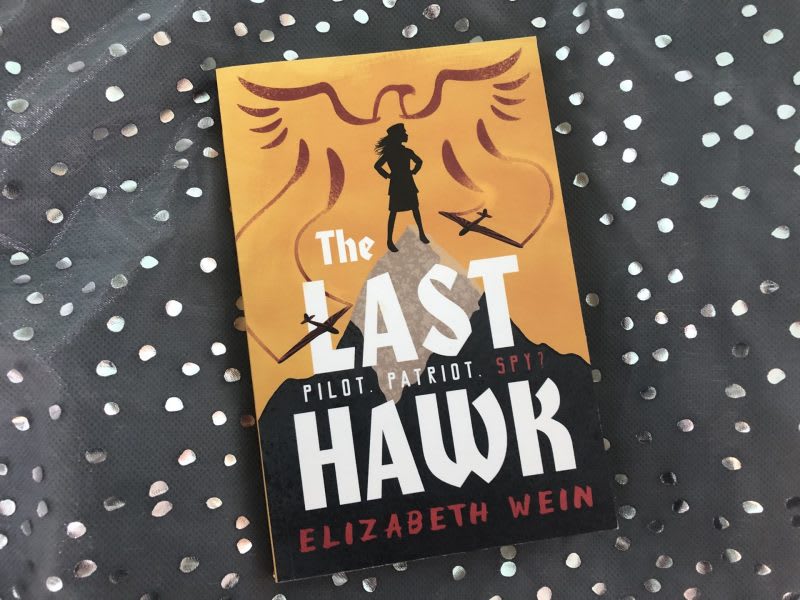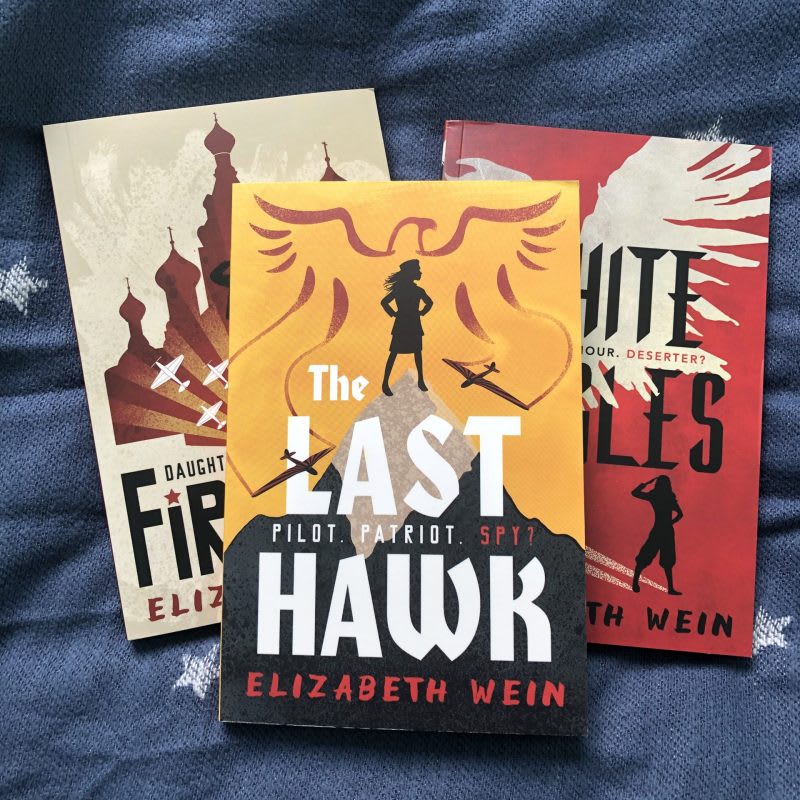The Last Hawk by Elizabeth Wein: Review

Set in Germany in the early 1940s, Elizabeth Wein’s The Last Hawk follows the story of Ingrid, a shy young woman who escapes her fears and finds confidence when she takes to the air as a glider pilot.
Ingrid’s stammer means that her life is threatened by the horrific eugenics policies of the Nazis, but her flying skills soon offer her an opportunity to protect her own life and make her useful to the Luftwaffe as they plan their attacks on the Allied forces. She works alongside the real-life test pilot Hanna Reitsch whose extraordinary talent made her enormously important to the Nazi propaganda machine and Ingrid joins her on a drive to recruit more young airmen who are willing to risk their lives for their cause.
This work exposes Ingrid to even more truths about the dreadful atrocities of the Nazi regime and she is gradually forced to make a choice between continuing to protect her own life or to risk it by sharing secrets with those fighting against the people in charge of her homeland. While her glider allows her freedom and peace in the air, her life on the ground is full of dangerous secrets that threaten her life at every turn. Without anybody she can trust or anyone she can turn to for help, Ingrid must make her own decisions and take responsibility for her actions.
Although she is a fictional character, Ingrid’s circumstances and the details of her life in Nazi Germany have been carefully researched and brilliantly portrayed by Elizabeth Wein, a Carnegie nominated historical fiction author whose exceptional body of work frequently centres around the involvement of women in the Second World War. Her love of and fascination with aircraft shines through in each of her books and The Last Hawk strikingly acknowledges the immense power of these machines and the terror of which they were capable in a time of war.

The Last Hawk fits perfectly alongside Wein’s earlier books including Firebird and White Eagles. All three of these titles follow young female protagonists who are involved with the Second World War as pilots. Their love of flight gives each of these women power over their circumstances and enables them to play their own part in fighting the war. It’s so refreshing to read female war stories and even more so to engage with the perspectives of nations that we rarely get to read about such as Russia and Poland.
I particularly like Wein’s decision in The Last Hawk to tell a story of the Second World War from within Germany and to show that there were people who did question and rebel against the brutality of the Nazi regime. It’s so important to show a young audience that we can fight from within and this book forces us to ask ourselves what we would do if we were in Ingrid’s position. Historical fiction is so important for enriching our understanding of the past and books for young audiences are a great way to share an understanding of history and establish empathy with those who lived through it. The Last Hawk does this perfectly.
Thank to Barrington Stoke for my review copies of The Last Hawk, Firebird and White Eagles.
Disclaimer: This page contains affiliate links to bookshop.org and will redirect you to their website. If you make a purchase I will make a very small commission at no extra cost to you and they also share their profits with independent bookshops around the UK.